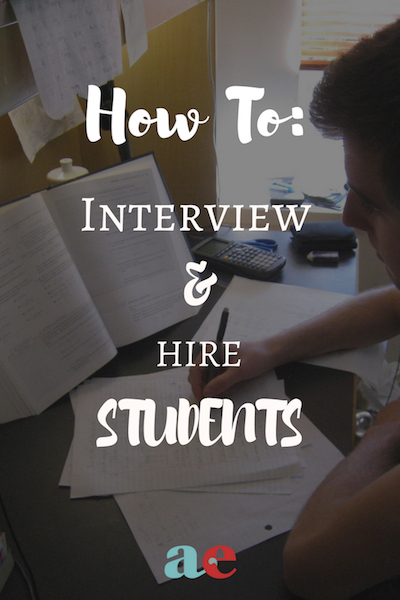Students often face a struggle getting a job in their field of study, especially when their experience is limited. So when you’re trying to interview someone with limited experience, how do you gauge what kind of candidate they might be?
Asking the right kinds of questions can make all the difference.
Understand What Kind Of Student They Are
Just because a student might not have all that much job experience doesn’t mean they don’t know how to work hard or be professional. Ask them about their classwork and projects and try to get specific examples.
During my undergrad, I took a class all about studying conflict negotiation. I worked with classmates on real-life case studies and gained experience handling difficult conflict all sorts of organizations have run into. Just because my experience with conflict negotiation in the job field was limited didn’t mean I didn’t know how to tackle difficult situations placed before me.
Asking your student interviewee to go into detail about their classes and projects – and even grades, if you wish – can help you dig deeper to see if they’re the right candidate for you.
Assess Critical Job Skills
Martin Yate, author of Hiring the Best: A Manager’s Guide to Recruitment and Selection, said there are three skills to look out for in an interview because most entry-level jobs use them. Those three skills are time management, problem-solving skills and communication skills.
When asking them about time management, ask them how they typically organize their day. Students have a ton to juggle – especially those who are attending school and working simultaneously. Ask them about a specific time they struggled to organize everything and what they did about it.
As I mentioned before with my conflict negotiation class, my limited job experience didn’t mean I didn’t know how to problem solve. Ask them about problems they’ve run into in previous jobs and classes and see what they did to solve it – see if you can have them specifically pinpoint skills they used to solve problems.
You can usually gauge their communication skills simply by speaking conversationally with them during the interview. Pay special attention to how they process your questions and reciprocate body language.
Ultimately, the most important aspect of an interview is seeing how well you would work with this candidate. Do they seem like they would be a benefit to you organization and help move it forward where you want it to go? Would you enjoy spending every work day with them? Is their motivation, honesty and work ethic on par with yours? If the answer to these questions is yes, does it really matter how much “real job” experience these students have?

by: Emily Brady

Emily Brady received her Bachelors at Brigham Young University Idaho where she majored in Communication Sciences with an emphasis in journalism and professional management. She has written for Scroll News and Deseret Digital Media and is currently a freelance writer. In her free time she enjoys hiking, reading and swinging in her hammock.

